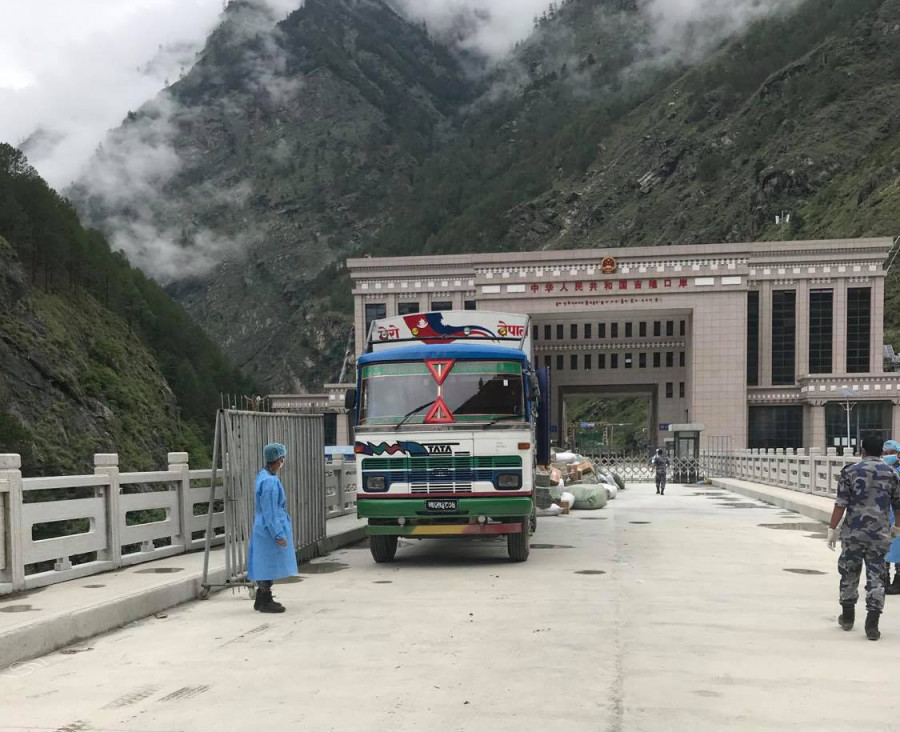Editorial
Ease China border impasse
The government must speak with Beijing to ensure a swift supply of goods.
Around 2,000 containers with clothes, shoes and electronic devices worth at least Rs20 billion are stranded at two border points with the northern neighbour. It is said that cargo clearance Around 2,000 containers with clothes, shoes and electronic devices worth at least Rs20 billion are stranded at two border points with the northern neighbour. It is said that cargo clearance has been slow due to Covid-19 safety protocols.
About one-third of the annual consumption in Nepal takes place during the country’s biggest holiday season, which starts with Dashain and lasts until Tihar, and consignments from China, mostly apparels, are stuck at the Rasuwagadhi-Kerung and Tatopani-Khasa border points. According to traders, imported clothing accounts for some 70 percent of the readymade garment market, and Nepal imports nearly 80 percent of the readymade garments sold in the Kathmandu Valley from China. With no new arrivals, traders fear the annual shopping season is slipping by, which will mean huge losses for them.
For a country which is mostly reliant on imports, consumption of goods and services during the festival season is a key driver of the Nepali economy, contributing 82 percent to the gross domestic product. Low consumption, economists say, will affect overall economic growth this fiscal year, and any chance of a slight recovery for the traders is looking more and more unlikely.
The border points with China were first closed on January 20 to prevent the spread of the coronavirus. With the goods stranded on the Chinese side, traders say they don’t have money to import any goods from China even by using the sea route, which will mean consignments have to travel to Indian ports, especially Kolkata. And lending figures from commercial banks attest to this claim. According to the Nepal Bankers’ Association, loans to import goods for consumption during the festivals have gone down significantly, from Rs54 billion in the last fiscal year to just Rs21 billion this year.
Despite slow clearance of cargo through the two border points with China, Kathmandu has yet to take the issue up with Beijing. Reports suggest the consignments have not been able to move as steadily as they should due largely to Covid-19 safety protocols, but there is a lack of clarity if that is the only reason, or there are other concerns, including security.
When it comes to its two neighbours, India and China, between which Nepal is sandwiched, the KP Oli government seems to have lost coherence when it comes to dealing with them. Analysts have even warned of consequences of a lopsided foreign policy the Oli administration has been following.
The authorities must find an answer to why exactly the consignments are stuck at the two Chinese border points. Since March, following the government decision to reopen the two border points to ensure a smooth supply of goods, they have only seen one-way traffic and limited movement of goods. The government must knock on high doors in Beijing to ensure a swift and smooth supply of goods and bet on any chance to recover, ahead of Nepal’s two biggest festivals, when public spending will likely increase, although not like in regular times.




 16.12°C Kathmandu
16.12°C Kathmandu














